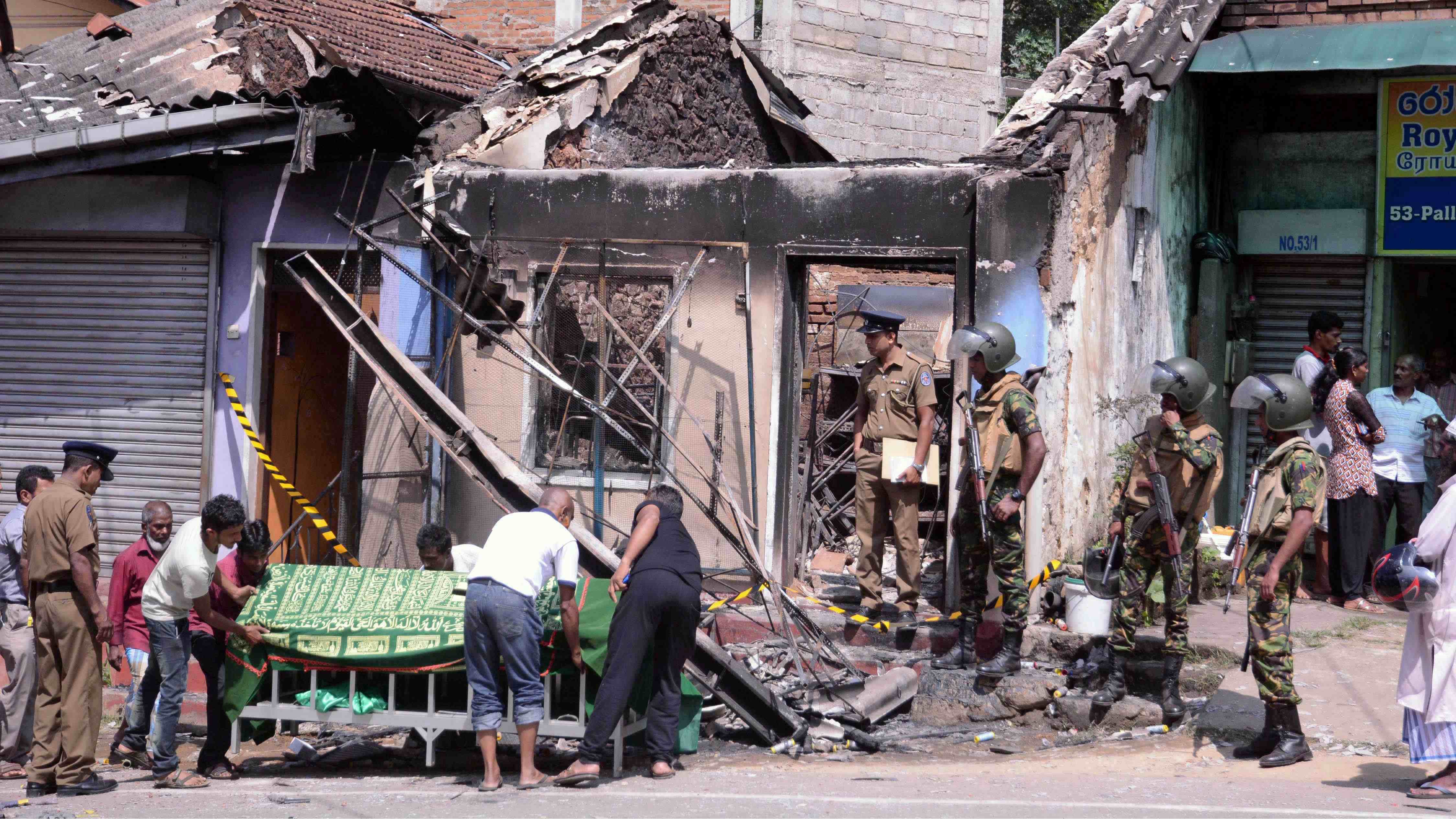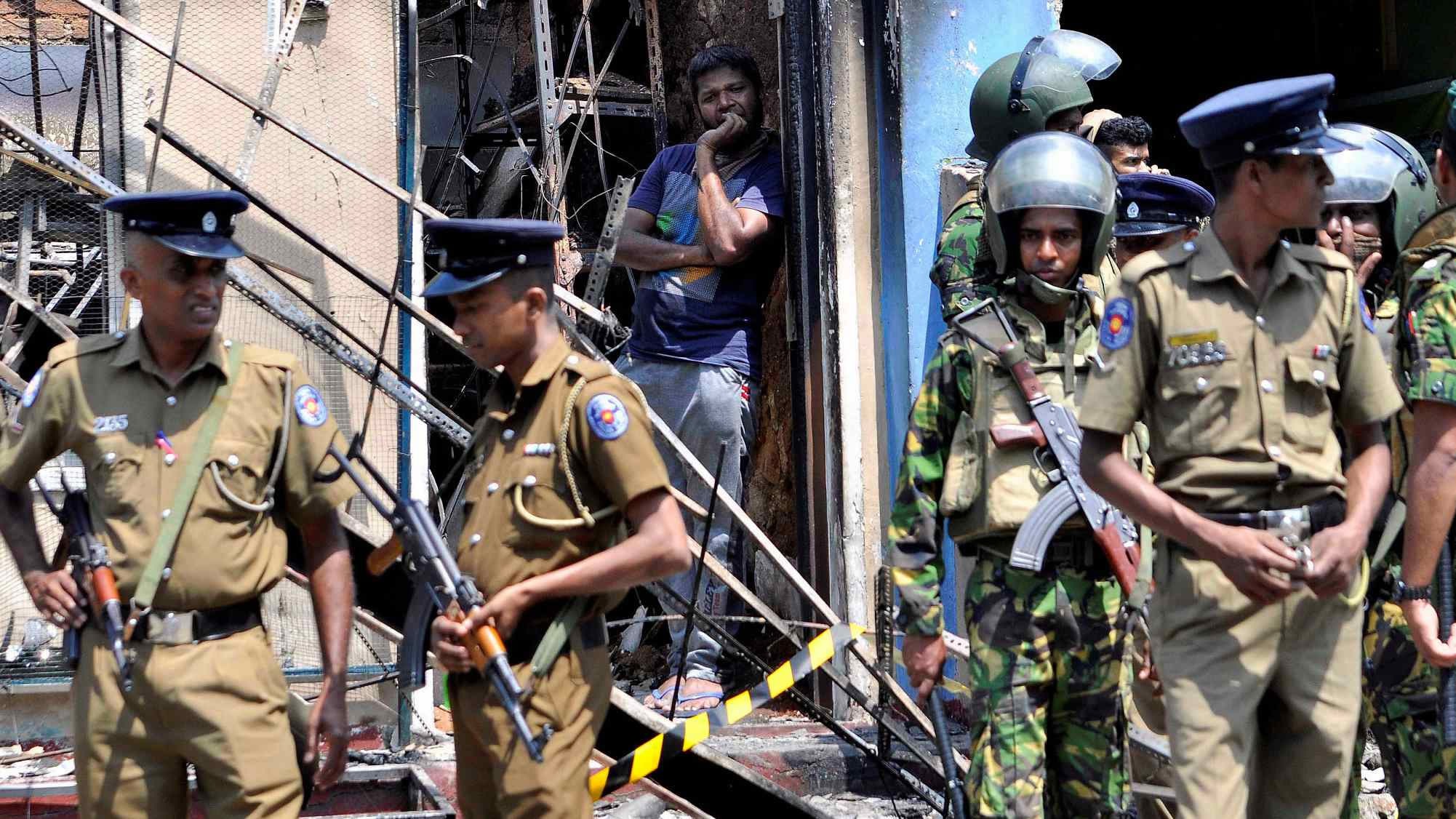
Politics
10:13, 07-Mar-2018
Sri Lanka declares one week state of emergency
CGTN

Sri Lankan President Maithripala Sirisena announced a one week state of emergency on Tuesday, just a day after Buddhists and Muslims clashed in the island's central Kandy district.
According to the official announcement, the state of emergency has been declared due to the violent and criminal activities that took place between the groups during the past two weeks.
Previous reports said the emergency period was set for 10 days, citing a government spokesman.
Analysts say the government has been alarmed by the speed with which the trouble spread in two districts of Kandy and sought to contain it through the imposition of emergency.
Postings have appeared on Facebook threatening more attacks on Muslims. The unrest in Kandy began on Sunday after the funeral of the Sinhalese truck driver, the government said.

Sri Lanka's Special Task Force and police officers stand guard near a burnt house after a clash between two communities in Digana, central district of Kandy, Sri Lanka on March 6, 2018. /VCG Photo
Sri Lanka's Special Task Force and police officers stand guard near a burnt house after a clash between two communities in Digana, central district of Kandy, Sri Lanka on March 6, 2018. /VCG Photo
It was not clear why the initial altercation occurred but after the driver's funeral on Monday, a Sinhalese mob attacked Muslim shops, police said. Early on Tuesday the body of a Muslim youth was found in a burnt-out shop, police said.
Area residents have said more than 30 shops and houses have damaged while scores of mosques also have been attacked after the government imposed a curfew on Monday. Police reimposed the curfew until 0600 hours (0030 GMT) Wednesday.
The US Embassy in Sri Lanka said it was important that the government act quickly against perpetrators of sectarian violence, and protect religious minorities and their places of worship. It also asked for an early lifting of the emergency.
UN Under-Secretary-General for Political Affairs Jeffrey Feltman will visit Sri Lanka this week as planned while the country is in a state of emergency, a UN spokesman said Tuesday.
Feltman will meet with a wide range of Sri Lankan leaders, including the president, the prime minister and other senior officials, political parties and civil society groups, said Stephane Dujarric, spokesman for the UN chief, at a daily news briefing.
The visit, scheduled for March 9 to 11, was planned before the state of emergency was imposed, said Dujarric, adding that "the visit is part of ongoing UN engagement with Sri Lanka."
"We are obviously concerned over reports of the ongoing communal violence and we welcome the government's commitment to addressing the tensions and achieve reconciliation," he said, noting that "we urge all Sri Lankans to resolve their difference through dialogue."
5173km

SITEMAP
Copyright © 2018 CGTN. Beijing ICP prepared NO.16065310-3
Copyright © 2018 CGTN. Beijing ICP prepared NO.16065310-3